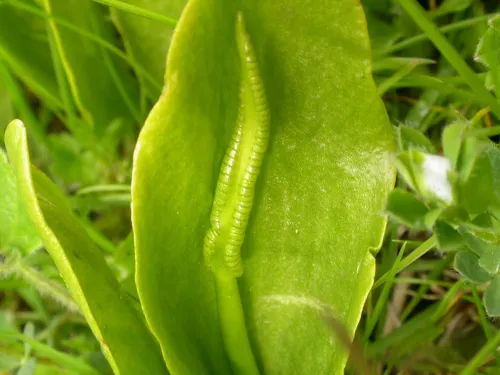
Adder's-tongue fern
The adder's-tongue fern is so-named because the tall stalk that bears its spores is thought to resemble a snake's tongue. An indicator of ancient meadows, it can be found mainly in southern England.
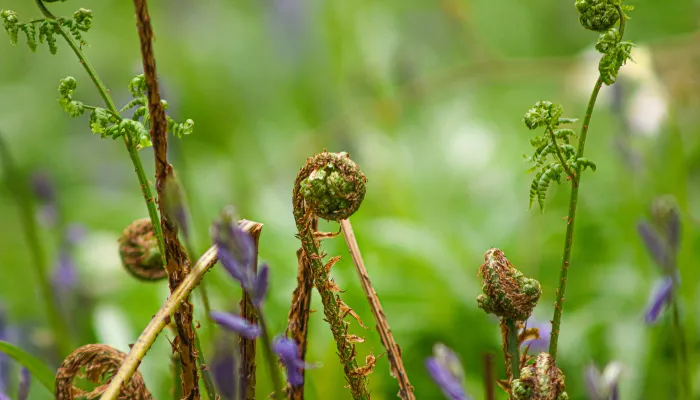
Learn about the beautiful world of ferns and horsetails in the UK.

The adder's-tongue fern is so-named because the tall stalk that bears its spores is thought to resemble a snake's tongue. An indicator of ancient meadows, it can be found mainly in southern England.
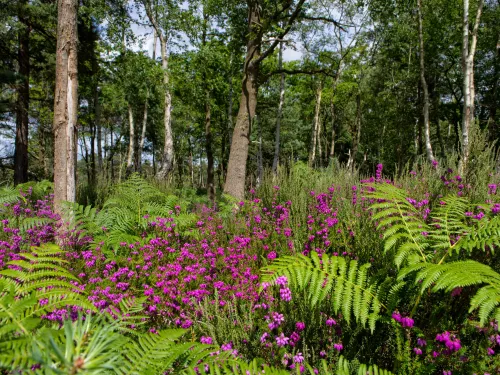
Our most familiar fern, bracken can be found growing in dense stands on hillsides, moorland, heathland and in woodlands. It is very large and dies back in winter, turning the landscape orangey-brown.
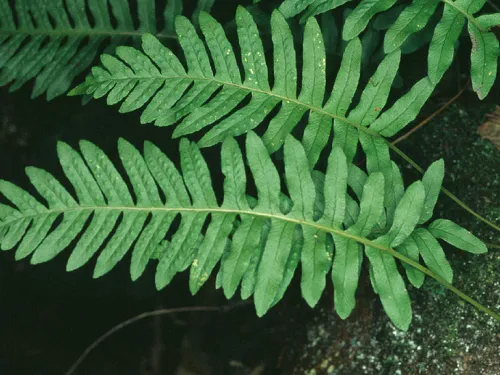
The common polypody is a hardy fern of damp, shady places in woodlands. It also makes a good garden fern. It has ladder-like, leathery foliage with pimply undersides - these spots are the spores.
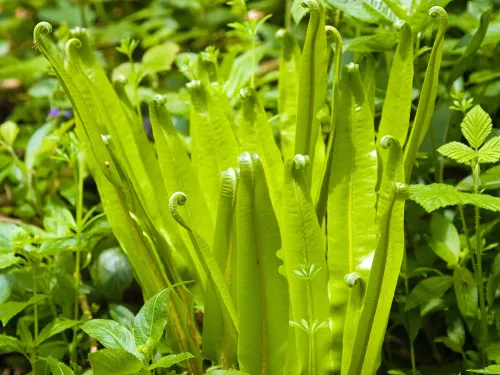
The hart's-tongue fern is a hardy fern of damp, shady places in woodlands. It also makes a good garden fern. It has simple, tongue-shaped, glossy, green leaves that have orange spores on their undersides.
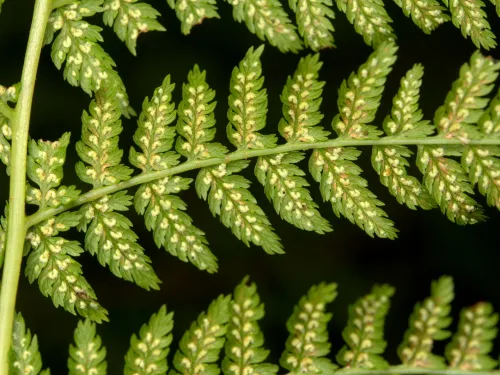
One of the prettiest hardy ferns, the lady fern is delicate and lacy, with ladder-like foliage. It makes a good garden fern, providing attractive cover for wildlife.
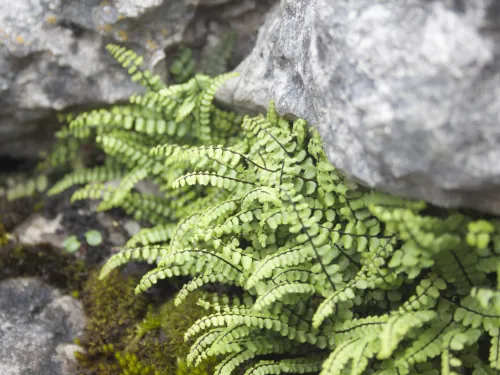
A small, tufted fern, maidenhair spleenwort can be found growing out of crevices between rocks, in walls and on mossy branches across the UK.
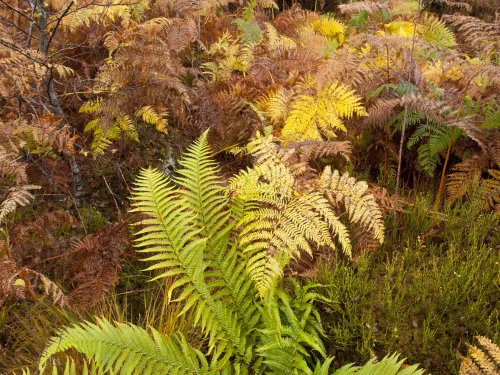
A classic fern of woodlands across the UK, the male-fern is also a great addition to any garden. It grows impressive stands from underground rhizomes, dying back in autumn.
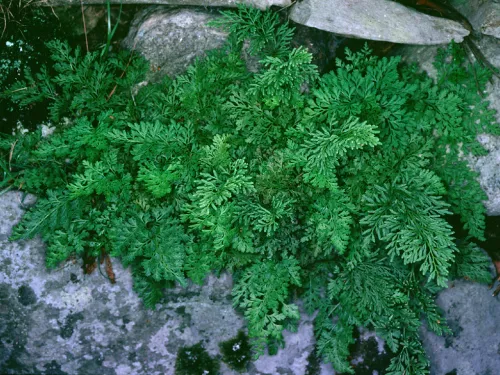
Parsley fern lives up to its name - the pale green fronds form in clusters among rocks and look just like parsley. Look out for it in upland areas, particularly in Wales and Cumbria.
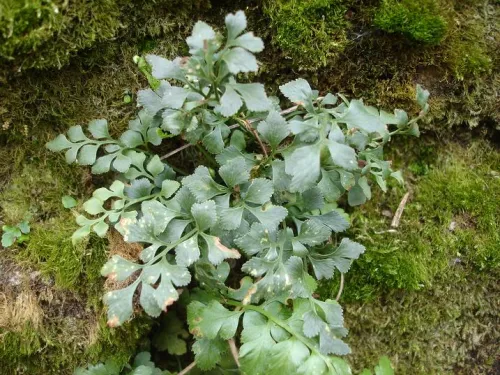
With club-shaped leaflets on its fronds, wall-rue is easy to spot as it grows out of crevices in walls. Plant it in your garden rockery to provide cover for insects.